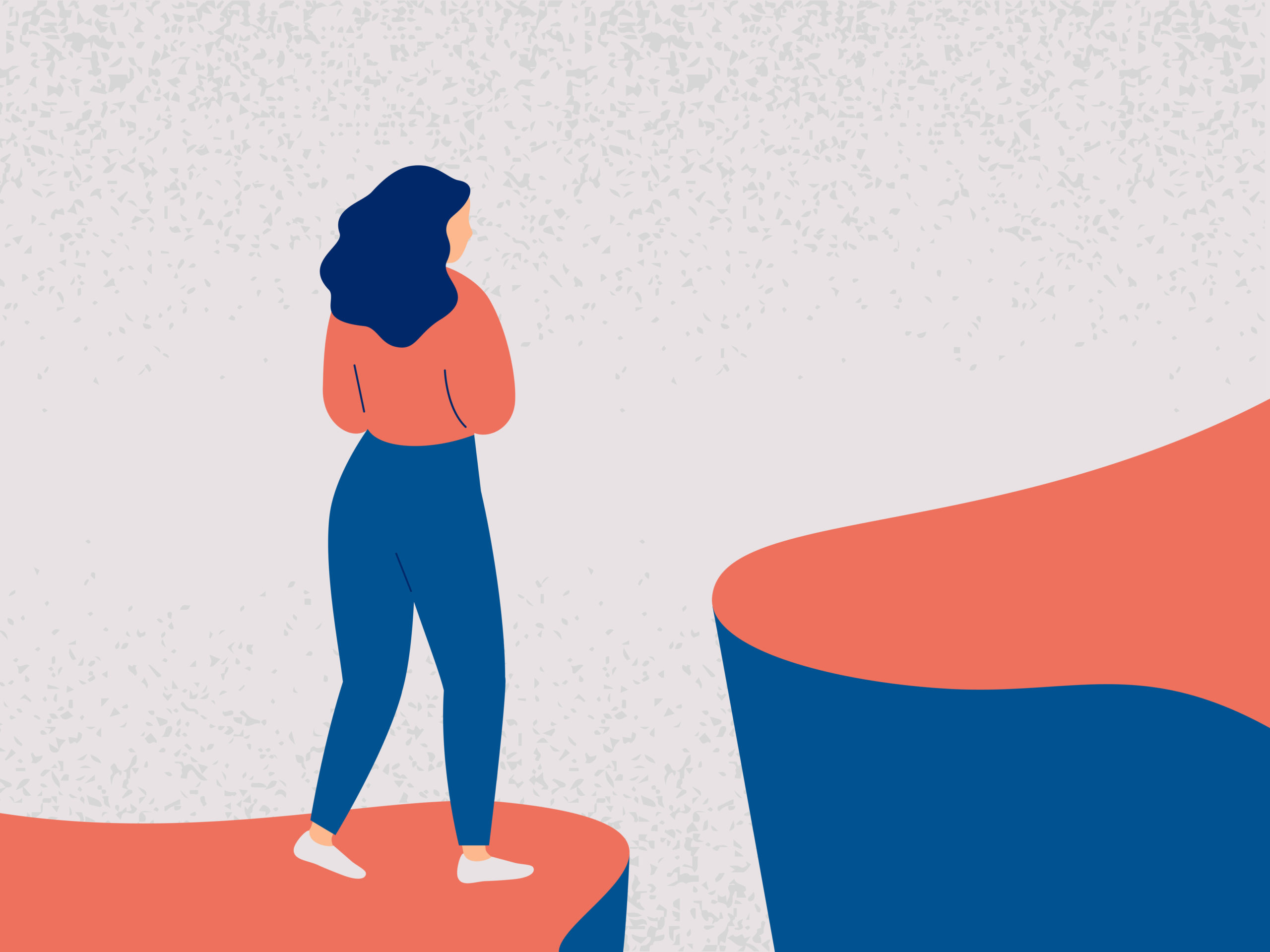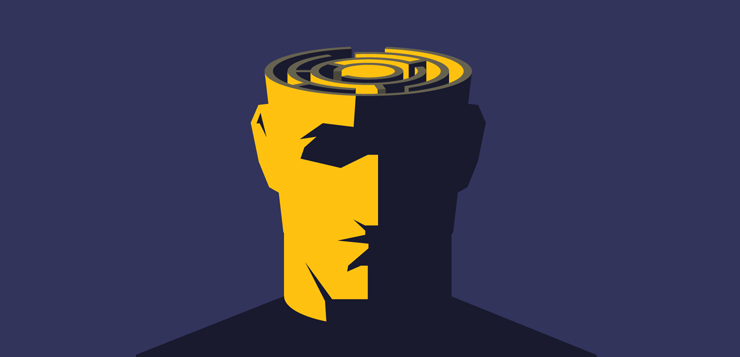When I was 23 and just starting out in journalism, I made an awful mistake. While covering a high-profile trial in San Jose, California, I wrote that a woman who hadn’t been charged with any crime had plotted a murder.
The woman I’d wrongly incriminated sued me and my newspaper for libel, demanding $11 million. Had she won, it would have killed my career and financially damaged my employer.
Alas, this wasn’t my first reporting error.
In the preceding weeks I’d made a series of smaller mistakes, mostly getting names and dates wrong, although once I’d quoted a rancher as telling me he had to leave to “shoot a horse” when he’d really said “shoe” a horse. He called the news desk the morning that story appeared to demand a correction, saying his sister worked for the Humane Society and had given him hell.
As these errors piled up, I feared my days at the newspaper were numbered. But I still couldn’t seem to slow down and take the time to check my work. Instead, whenever possible, I blamed the flubs on others. The rancher had mumbled. The copy editor hadn’t done his job. My editors were overworking me and I was tired.
By the time of the libel lawsuit, I’d run out of excuses. But surprisingly, instead of firing me, the paper’s managing editor—a tough-on-the- outside Lou Grant type who until then had been my biggest fan—suspended me for three days, giving me just one more chance. He also bluntly suggested I use the time to get professional help.
“You’re sabotaging yourself,” he warned.
I had no choice but to change: to stop looking for excuses, and to do the hard work to become the kind of person I’d long wanted to be.
I took his advice and, even before I left the newsroom that day, tracked down a psychiatrist to make my first appointment. I couldn’t bear the thought of losing a job that was then my whole identity, and understood in that moment that I had no choice but to change: to stop looking for excuses, and to do the hard work to become the kind of person I’d long wanted to be—both more competent and more trustworthy. In other words, I had to start being more accountable. The main problem was, I still had so little faith that I could make such a big change.
Slow Down to Speed Up
This was (ugh, how time flies!) 1981. Mindfulness wasn’t a mainstream thing yet. But Freudian psychoanalysis, couch and all, was available for those who had really good insurance or could otherwise find the money to pay. My psychiatrist was still in training, reporting to a supervisor. He offered me a hefty discount that made it just affordable.
His mantra was, “Mistrust your sense of urgency,” which was at once the most helpful thing I’ve ever heard and the most difficult thing I’ve ever done. Again and again, he urged me to sit still and experience my feelings, rather than doing what I most yearned to do, which was to run from them, in any way I could. It’s embarrassing to look back on all the hours I wasted in ridiculous debates with him about whether I really needed therapy at all, and in trying to change the subject, and in throwing myself harder into work and pleading exhaustion as a reason to cancel appointments. But at last something shifted and I managed to face my all-but-overwhelming shame at having screwed up so repeatedly—and, more deeply, in believing I was destined to keep screwing up. Only then could I see how much shame had determined my behavior until then, particularly in my insistence on looking for other things and people to blame for my own mistakes. My editor was right—I had been sabotaging myself, for reasons that would take a long time to understand. Four years, to be precise.
A couple of decades later, when I was bringing up my kids, a wise swim coach observed my eldest son’s fast but awkward freestyle and told him, “You’ve got to slow down to speed up.” Sparing the grisly details, my own speed, just as clumsy, had some roots in childhood events that had conditioned me to tune out whenever I was stressed. Sticking with the therapy helped me first slow down enough to bring my brain’s pilot back into the cabin and stop making those mistakes, and then to patiently learn why I’d been making them. As time went on, my psychiatrist also helped me stop playing the victim whenever I was challenged. He insisted that I behave with integrity, beginning by charging for missed appointments whenever I canceled without a good reason.
Eventually, this practice—although it still wasn’t popularly called that—of learning to be aware of when I felt like outrunning my feelings and then patiently returning to face them would help make me not only a more careful journalist, but also a better listener. That, in turn, helped me be a better friend, wife, daughter, and mother than I otherwise ever could have been. I’m not suggesting that four years of therapy is the best solution for anyone making errors at work. But for me, slow accountability saved my life.
Working with the Shame Response
Once you stop to notice, you may be surprised by the prevalence, variety, and depth of human error. From the simple fender-bender on your way to work to immensely more devastating plane crashes, botched surgeries, and downright horrific cases of parents leaving babies in hot cars, we constantly, mysteriously, act against our own self-interest.
Once you stop to notice, you may be surprised by the prevalence, variety, and depth of human error.
My own experience with a far less consequential but still potentially devastating error early in my life has made me obsessed by human error, and particularly how people recover from the shame of seemingly incomprehensible mistakes. Mitch Abblett, a clinical psychologist and former executive director of the nonprofit Institute for Meditation and Psychotherapy, shares this interest, writing powerfully about the way shame can paralyze us.
“The shame response is very old and comes from a primal part of the brain,” he told me in a recent interview. “As a psychologist I think of our evolutionary biology: Tens of thousands of years ago, if we did something that caused us to feel shame, it was related to our very survival, to fear that we’d be rejected from our social group and die.”
Abblett says a mindfulness practice can help people move past seemingly intolerable shame, as they ride out the physical sensations arising from shame and the “indignant arrogance” he says often accompanies it to arrive at regret, an emotion that more easily allows us room to make wiser choices—and to be more accountable. He gave the example of the 2007 documentary film, The Dhamma Brothers, which followed four convicted murderers on a 10-day meditation retreat in an Alabama prison. The prisoners said it was agonizing at first to sit still with the awareness of what they’d done to others and what others had done to them. But once they stuck with it, it was also liberating.
Taking Accountability for Failure
It’s interesting to contrast the Dhamma Brothers’ experience with the movement, over the last several years, to destigmatize failure in a hurry. “Fail fast, fail often!” and “Move fast and break things!” are the relentlessly cheery slogans of Silicon Valley, a place in which three-fourths of startups go bust. The archives of the TED Talks—the Valley’s influential e-sermons—include more than a dozen presentations about failure, many of which tout its “surprising” benefits. A paean to “celebrating failure” by Astro Teller, the “Captain of Moonshots” at Google’s idea factory, X, has been viewed more than 2.6 million times. In 2009, the same ethos inspired a popular program called “Fuckup Nights,” in which entrepreneurs take the stage to talk about their business disasters. The Mexican entrepreneur Leticia Gasca founded the project after her startup, a philanthropic effort to help Native women sell their handicrafts, went bust. Since then, “Fuckup Nights” have been held in more than 250 cities in 80 countries. Gasca’s organization also offers workshops to businesses to help “create a culture that celebrates trying, rather than stigmatizing failure,” according to their website. Using storytelling and a Q&A session, the workshops aim to “eliminate shame to turn it into accountability and autonomy.” FailCon, a similarly themed day-long conference, was founded around the same time by Palo Alto software designer Cassandra Phillips and has also gone global.
My reporting errors were in another class than the Silicon Valley sorts of failures, which mostly involve mistaken strategies and decisions. But both kinds of blunders share two important things: the potential to harm other people—say, when livelihoods are lost after businesses go bankrupt—and the corresponding need for someone to take responsibility and make changes. Both, in other words, demand accountability. And that might require something more mindful and systematic than just sharing stories of failure.
Sam Silverstein agrees. A former manufacturing business owner and author of several books about accountability, Silverstein’s main point, which he stresses repeatedly, is that accountability never happens in isolation. “It’s always a matter of being accountable to someone,” he told me. “Accountability is keeping your commitments to people. We’re responsible for things, but we’re accountable to people.”
I thought back on my tough-love treatment by the managing editor, and how much I’d wanted to redeem myself in his eyes. I also remembered the bond I’d established with my psychiatrist, who so skillfully, over months and years, had gained my trust and respect. It made sense that accountability depends on these kinds of strong relationships, which require long and steady investments of time. Still, I don’t believe you can achieve it without also devoting a lot of individual effort. As I recalled all that work with the psychiatrist, predating the mindfulness movement, it felt as if he’d helped me build up my muscles to face down shame on my own the next time it emerged. At the end of our time together, it was up to me to keep those muscles in shape, by honestly questioning my behavior and, importantly, by making sure I always had other relationships in my life—both in and out of work—that would help hold me accountable.
Staying Accountable in Daily Practice
My slow accountability practice has helped me in my marriage and in deepening friendships, but it’s probably helped the most in my relationships with my children. I grew up with the notion—handed down from my own mother—that mothers should be perfect, that we’re older and thus wiser and our mandates shouldn’t ever be challenged. But times have changed, and I do believe that even as parents should set limits for our children, we should also model virtues, including being humble and owning up to our mistakes. So even though my first instinct, after forgetting, for instance, to pick them up from Hebrew School (leaving them waiting an extra 20 minutes) was to deny it ever happened or to make an excuse, I instead took a breath, took the hit, and apologized (sincerely but not excessively) for losing track of time. One of the greatest and also most painful things about having children is they inevitably give us so many opportunities for humility, as long as we’re willing to recognize them and not get defensive or play the victim.
That kind of accountability happens over time, and because of deep relationships. Contrast that with Fuckup Nights, which offer the hope of a quick catharsis: a funny, self-deprecating story in the spotlight and you’re done. But the more I thought about them, the more they seemed like just another version of running away.
In fact, the slapdash Silicon Valley approach to failure has been getting some pushback from the people you might least expect. “Every time I listen to Silicon Valley types or students bragging about failing fast and often like it’s no big deal, I cringe,” Gasca said in her own TED Talk last year. She was now extolling the notion of failing “mindfully,” which she described as being aware of the consequences of what you’ve done and the lessons learned—and the responsibility to share those lessons with the world.
Somewhat similarly, Phillips, the FailCon founder, told me she’d recently abandoned that effort out of frustration. “I was tired of people not discussing the actual takeaways, the next steps, and taking ownership for what really happened,” Phillips wrote me in an email. Something like that would demand regular, smaller conversations over time, she explained—something she wasn’t then interested in doing. But I understood her point. Genuine accountability depends, as Silverstein told me, on relationships of trust, which take time to develop, as well as on each of us building the habit of rigorous introspection.
Any way you look at it, it’s not a speedy process.
READ MORE
A Practice for Being with the Pain of Failure
Finding our way to true accountability requires a willingness to sit with the discomfort of having caused pain, allowing true compassion to arise.
Read More
A Mindful Approach to Failure
In this TED Talk, author and entrepreneur Leticia Gasca shares three lessons on how to fail mindfully.
Read More
What Happened When I Leaned In to My Fear of Not Achieving
Ryan Vaughn explores how confronting the feeling of not being good enough allowed him to slow down and recognize fear-based reactions for what they were—a series of bodily sensations, combined with a reflexive urge to achieve.
Read More
Why Our Brain Thrives on Mistakes
A slowly growing body of research suggests that our common aversion to failure is itself a failed strategy. Being curious about our mistakes is the royal road to learning. And mindful techniques can help.
Read More





